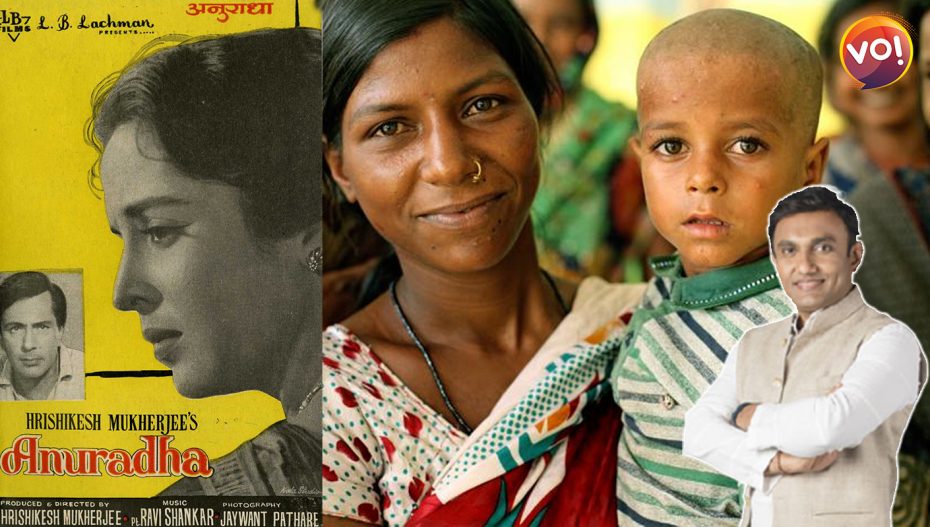Karnataka minister for Health and Family Welfare, Dr K. Sudhakar, recently, did some ridiculous finger-pointing at women who choose not to have babies, thereby reinforcing the myth that the onus of a happy family life is on the woman, and that in a toss-up between a career and children, a woman must give up the former.
How come men never have to make this difficult choice? Barring a few exceptions, do men sacrifice promising professional lives to change diapers and attend Parent-Teacher meetings?
A sensitively-made film by Hrishikesh Mukherjee, looked at this dilemma of family versus career more than six decades ago. Anuradha, released in 1960, is a moving portrayal of a talented, renowned singer giving up the limelight to live in a village with the man she loves, a doctor who opts to treat poor, rural patients.
Music is Anuradha’s passion, a passion shared by her childhood friend and suitor Deepak; but Anuradha, played by debutante Leela Naidu, chooses to follow her heart and marry Dr Nirmal Choudhury—essayed, with his characteristic restraint, by Balraj Sahni—even walking out of her father’s house to do so. Deeply in love, she pays no heed to Dr Choudhury’s warning that there will be no one in the village to appreciate her music. “I will sing for you. I don’t need any other person,” she replies, and blissfully breaks into song. The lilting Jaane kaise sapnon mein kho gayi ankhiyan… written by Shailendra and set to music by Pandit Ravi Shankar, is a dreamy expression of young love, brimming with optimism.
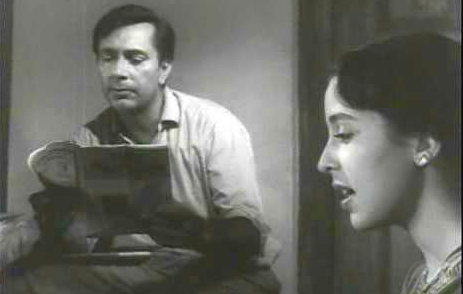
But living with a doctor, totally committed to his patients, is not exactly a dream. Though, initially, Nirmal is a devoted lover and enchanted by Anuradha’s voice, the sheer pressure of treating impoverished, sickly villagers leaves no place for music in his life. Over time, engulfed by loneliness, Anuradha stops singing, and is reduced to merely going through the daily motions of domesticity.
Ten years go by. The couple have a lovable chatterbox of a daughter, Ranu. Heart-warmingly, both parents contribute equally to her upbringing, with Nirmal even taking her on his rounds to visit patients. It is through Ranu’s innocent logic that the film draws attention to a harsh truth. The little moppet insists her mother’s name is Anuradha Roy as she has seen this on her mother’s music record, to which her father replies that since she is married to him, her name is now Anuradha Choudhury. Very subtly, dialogue-writer Rajinder Singh Bedi underlines the custom of women losing their identity after marriage.
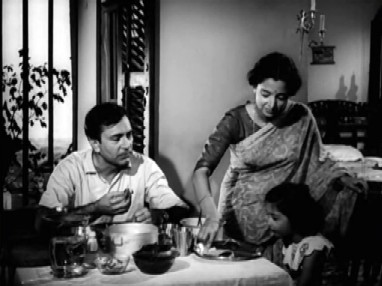
Bedi develops this thought further through Deepak, played by Abhi Bhattacharya. Deepak’s car accident in the vicinity of Dr. Choudhury’s clinic leads to him being brought home for treatment. When Deepak gains consciousness and finds Anuradha before him, he is ecstatic. But he is quick to notice that Anuradha is just a shadow of her former self. When he asks her to sing, she sings a melancholic Haaye…kaise din beete, kaise beeti ratiya, piya jaane na. Even as she is expressing years of pent-up feelings, her husband absent-mindedly leaves the room, nose buried in a medical journal. “Your voice is still the same!” exclaims an admiring Deepak.
But when he sees her dusty, neglected song-books, he is furious, “Why have you let dust settle on your talent? This is an affront to the Creator!”
“I am doing my duty to my home, my swami,” replies Anuradha, defensively.
A heated argument takes place between them. “The village may have got a good doctor but you do not have a swami!” expostulates Deepak, bluntly. “Were you born to only sweep, mop and make beds? Don’t you have a duty towards yourself? Please return to your father’s house and start singing again! Don’t delude yourself!”
Though Anuradha puts up a front with Deepak, when she waits all night for Nirmal on their anniversary, something snaps within her. She tells Deepak she will go back to her father’s house.
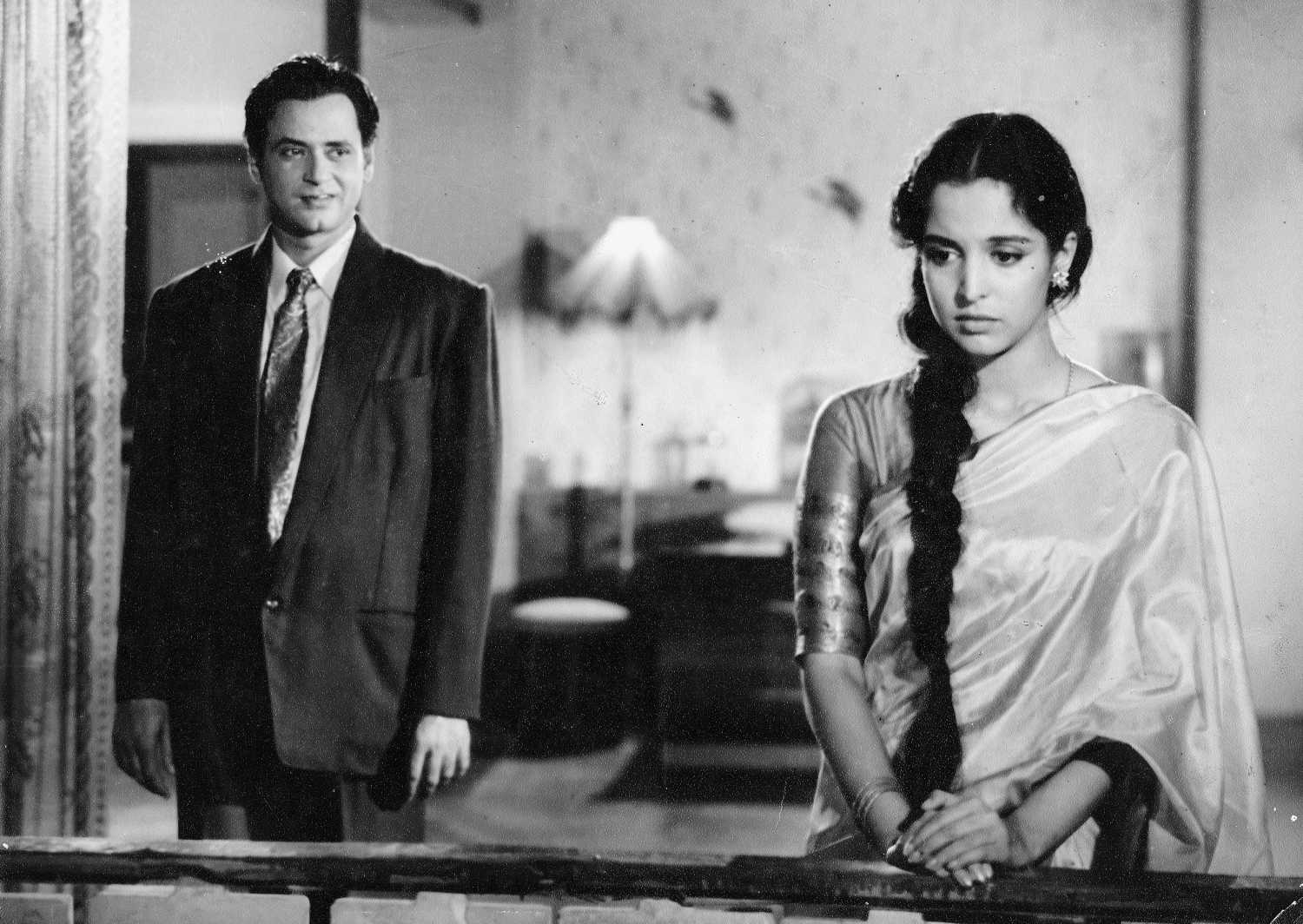
She conveys her decision to Nirmal, who comes home only in the morning, excited after meeting a senior doctor, a retired army colonel who has come to the village with his friend whose daughter was at the wheel of the car in which Deepak got injured. Nirmal has done an amazing plastic surgery on the lady’s face, without the sophisticated facilities of a city hospital. And the colonel is very impressed.
But Anuradha is not. “It is always your work that is important. I left everything to be with you. But I am absolutely alone, and you do not even notice this!” she bursts out. “I am going back to my father’s house this afternoon.”
However, on Nirmal’s request, she stays for another day as the colonel has invited himself for dinner to their house.
Like Deepak, Colonel Trivedi, played by Nasir Hussain, is quick to realise Anuradha has sacrificed her career to support her husband’s. When Dr Choudhury introduces Anuradha saying, “Meri patni, Anuradha”, the colonel corrects him. “Bilkul galat! Pehle Anuradha, phir tumhari patni.”
On his insistence, when Anuradha sings an angst-filled Haaye re, woh din kyon na aaye you can see realisation dawning upon her husband; while an emotionally-choked colonel tells Anuradha, “Beti, when the world applauds your husband, nobody will know that a voice got lost in that din, that a light got extinguished. Khush raho.”
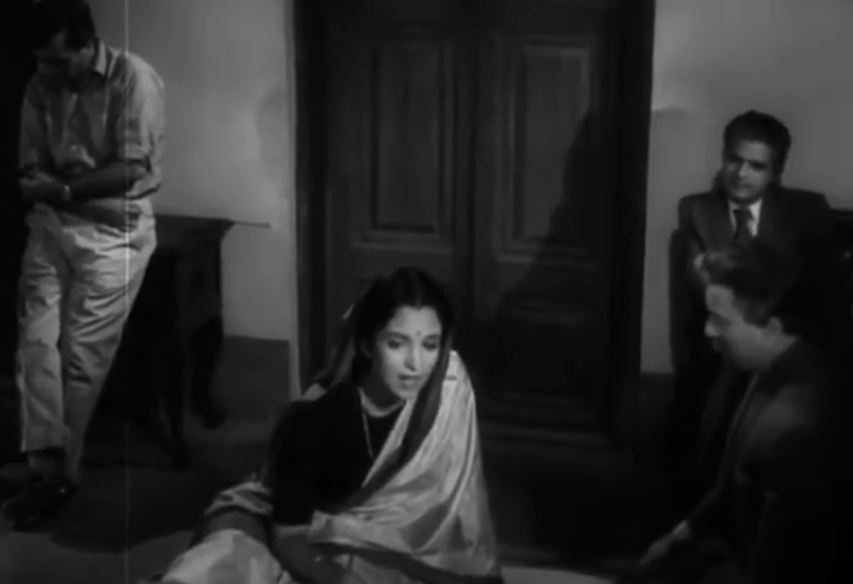
Though Nirmal has been made aware of his wife’s acute loneliness and silent sacrifices, he cannot help but rush out again to attend to a dying woman, after his guests depart. While he is away, Deepak and the colonel’s words echo repeatedly in Anuradha’s ears. Tears roll down her cheeks, uncontrollably; but she pretends to be asleep when her husband returns. He reaches out to her tear-stained face and soothes her forehead gently, sympathetically; wiping away all grievances.
With a new dawn, Anuradha and Nirmal start a new life, both more sensitive to each other’s needs. A warm end to a sweet-sad story, delicately nuanced.
That Hrishikesh Mukherjee chose a Sachin Bhowmick story that gives a woman an identity distinct from her husband’s and unapologetically recognises her potential beyond the home, spoke volumes about his liberal thinking. Refreshingly, Bedi gave the most progressive lines to two men.
Dr Sudhakar could, perhaps, watch Anuradha to understand women better…
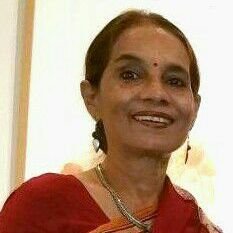
and
‘Dev Anand: Dashing Debonair’


